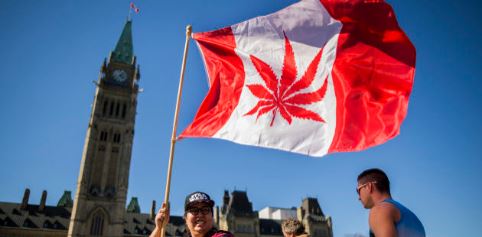You are here
Home 🌿 Recreational Marijuana News 🌿 Bad weed's now the government's problem, and so are the inevitable lawsuits 🌿Bad weed's now the government's problem, and so are the inevitable lawsuits

Whether you're for or against the legalization of cannabis, Canadian taxpayers should know the civil liability that the government has created for all of us.
The Canadian government has failed to recognize that it is not insulated from civil lawsuits in the same way as black-market drug dealers.
Here is some free business advice from a personal injury lawyer to protect our government from the laws of unintended consequences.
Bought bad weed or had a bad trip? You were ingesting an illegal substance bought from a drug dealer. You cannot sue. Any adverse effects are your problem.
Bought your pot from the Canadian government? Bought bad pot with bugs, mould or banned pesticides on it? You can sue. In many cases, our drug-dealer government may be the one getting sued. By extension, Canadian taxpayers will foot the bill.
Cannabis was legalized on Oct. 17, 2018 in Canada, only the second country in the world behind Uruguay. As such, we are blazing trails for other countries. Being a trailblazer means we are creating the cannabis framework, policies and procedures as we go along. In roughly four months, there have already been many missteps.
The government expects that consumers will continue to purchase legally through an online store despite a price that is 50 per cent higher than the black market. The government fails to recognize that once a purchase order has been processed, they have entered into a contract with the consumer to deliver the product as promised and in a timely manner. Customer orders are tough to fulfill when suppliers have cannabis shortages.
Mislabelled product is another cause for concern.
On the first day of legalization, a cannabis product marketed as a female genital spray intended to reduce pain and inflammation was mislabelled as an oral product. In another situation, a B.C. woman purchased a cannabis product that was labelled as high-CBD and low-THC when the opposite was, in fact, true. THC is the psychoactive ingredient in cannabis. The result for this woman was increased anxiety and decreased productivity. She has started a lawsuit as a result of the mislabelled product.
Mislabelling cannabis products is not only negligent but extremely dangerous. There could be potentially devastating consequences if someone receives a high-THC dosage unknowingly and the government could be held liable, if such a consequence happened.
In New Brunswick, a class action lawsuit has been launched against a company for using a banned pesticide on cannabis that was consumed by medical marijuana users and allegedly caused them to suffer negative health effects. If the government is either overseeing the supplier or selling product from the supplier, then the government could be held liable.
Mouldy cannabis has arrived at people's doorsteps. In Ontario, a company recalled their cannabis products due to the presence of mould and bugs — and later the recall expanded to British Columbia. Again, if negative health effects resulted from consumption of mouldy cannabis, the government would have liability exposure.
Louis Vachon, chief executive officer of the National Bank of Canada, announced that the bank would not invest in cannabis because he foresees class-action lawsuits arising from cannabis legalization.
Being greedy and trying to monopolize all revenue generated by direct sales will not end well.
Remember, it was not until 50 years after tobacco legalization that the first-class action lawsuit occurred. The numbers in class-action lawsuits tend to be huge. In Canada in 2015, the Quebec Superior Court ruled against three tobacco companies, ordering them to pay $15 billion in damages.
The Liberal government will gain popularity for cannabis legalization, but there is a failure to acknowledge the barrage of civil litigation that will undoubtedly happen in the years to come. The associated costs will be borne by the government, with a trickle-down effect on taxpayers, to pay for legal fees and to pay damages, if ordered to do so by a court.
The Canadian government has created liability exposure that can be limited if the government stops playing the role of drug dealer and instead hands over the business to the private sector.
The government should create a regulator to oversee the cannabis industry and distance themselves to minimize future liability. Being greedy and trying to monopolize all revenue generated by direct sales will not end well.
Greed leads to a path of self-destruction; the same is true for government.
420 Intel is Your Source for Marijuana News
420 Intel Canada is your leading news source for the Canadian cannabis industry. Get the latest updates on Canadian cannabis stocks and developments on how Canada continues to be a major player in the worldwide recreational and medical cannabis industry.
420 Intel Canada is the Canadian Industry news outlet that will keep you updated on how these Canadian developments in recreational and medical marijuana will impact the country and the world. Our commitment is to bring you the most important cannabis news stories from across Canada every day of the week.
Marijuana industry news is a constant endeavor with new developments each day. For marijuana news across the True North, 420 Intel Canada promises to bring you quality, Canadian, cannabis industry news.
You can get 420 Intel news delivered directly to your inbox by signing up for our daily marijuana news, ensuring you’re always kept up to date on the ever-changing cannabis industry. To stay even better informed about marijuana legalization news follow us on Twitter, Facebook and LinkedIn.




